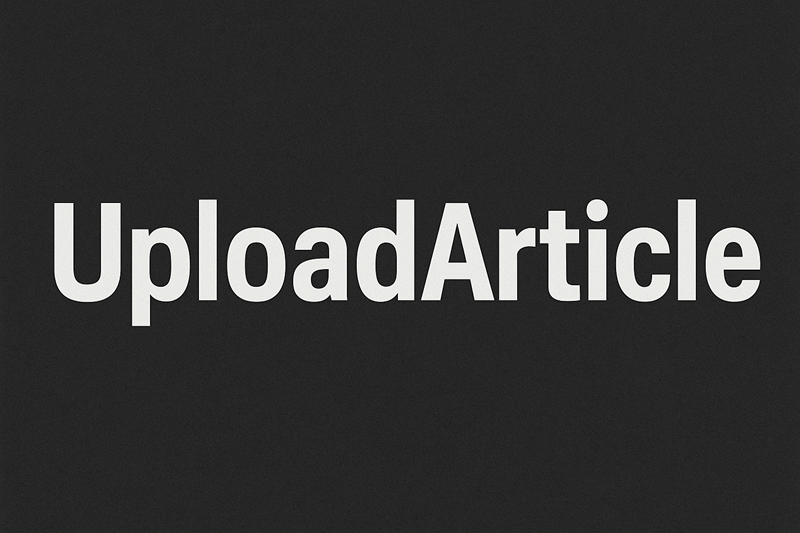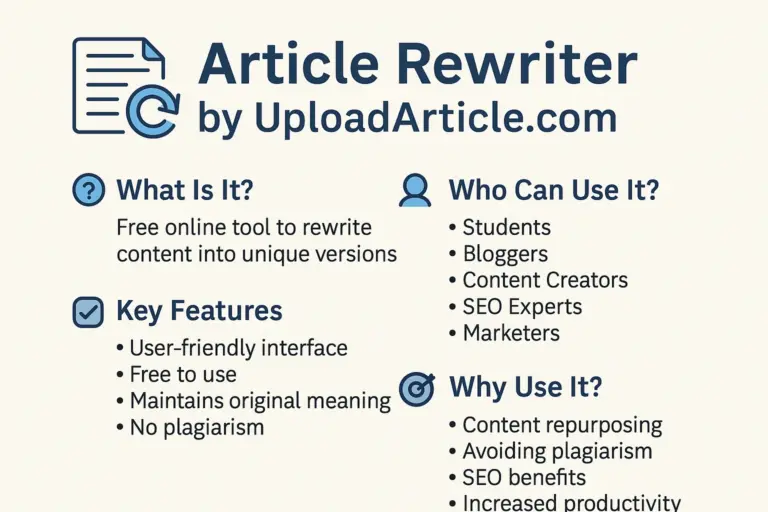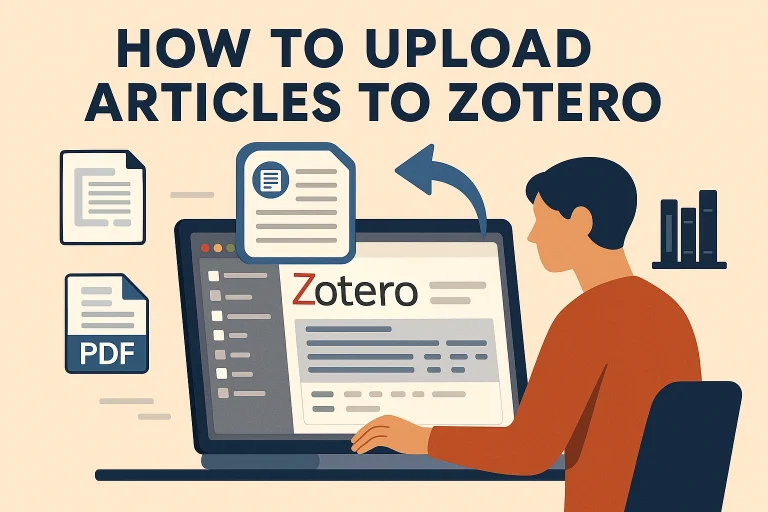How to Upload Article on ResearchGate ?
In today’s digital era, academic visibility is just as important as the research itself. One platform that has made a significant mark in the scholarly world is ResearchGate. With over 20 million users, it is a go-to network for academics looking to share publications, connect with peers, and enhance the impact of their work.
If you’re new to this platform or unsure about how to get started with publishing your work, this article will guide you step-by-step on how to upload article on ResearchGate, improve your visibility, and ensure compliance with publishing policies.
What is ResearchGate?
ResearchGate is a professional network for researchers, scientists, and academics. It enables users to:
-
Share research papers
-
Follow peers and experts in their field
-
Ask and answer research questions
-
Access a vast repository of academic publications
It’s a hub that bridges collaboration and dissemination of knowledge, especially beneficial for early-career researchers aiming to build a professional online presence.
Read More : uploadarticle.com
Why Should You Upload Articles on ResearchGate?
Uploading your articles on ResearchGate offers several advantages:
-
Increased visibility: Your work can reach a global academic audience.
-
Better networking: Connect with researchers in your field.
-
Feedback and collaboration: Gain insights and collaborate with fellow scholars.
-
Download and citation tracking: Get real-time stats on how your research is being received.
Whether you’re publishing your first research paper or have a series of publications, uploading them to ResearchGate can significantly increase your academic reach.
Step-by-Step Guide: How to Upload Article on ResearchGate
Let’s dive into the process. Here’s a detailed walkthrough of how to upload your article on ResearchGate.
1. Create and Set Up Your ResearchGate Profile
Before uploading, you need a ResearchGate account.
Steps:
-
Visit www.researchgate.net
-
Click “Join for free”
-
Select your role (researcher, student, etc.)
-
Enter your academic email and complete the registration
-
Confirm your email and log in
Once registered, fill out your ResearchGate profile with:
-
A professional photo
-
Academic affiliations
-
Research interests
-
Previous publications
A complete profile builds trust and enhances visibility.
2. Navigate to the “Add new research” Section
After logging into your account:
-
Click the “Add new research” button located at the top-right corner or under your profile.
-
Choose the type of work you want to add. Options include:
-
Article
-
Book
-
Conference Paper
-
Data
-
Thesis
-
Preprint
-
For most users, “Article” is the standard choice for journal publications.
3. Enter Publication Details
You’ll be prompted to fill out several fields:
-
Title of the article
-
Authors (add co-authors if applicable)
-
Journal name
-
Date of publication
-
DOI (Digital Object Identifier)
-
Abstract
-
Keywords
Make sure the information is accurate and matches your published version. This helps in search indexing and enhances discoverability.
4. Upload the Full-Text File
Here’s the core part of how to upload article on ResearchGate: uploading the file.
Click on “Upload full-text” to add a PDF version of your article.
Important Tips:
-
Make sure the file is clean and free of formatting errors.
-
Use the final published version or a preprint, depending on your publisher’s policy.
-
Check copyright restrictions. Some publishers allow only the accepted manuscript, not the final PDF.
To stay safe, use the SHERPA/RoMEO database (now part of Jisc) to check what version you’re allowed to share.
5. Specify Access Level
ResearchGate allows you to choose access levels:
-
Public (Open Access): Anyone can view and download
-
Request Full-Text: Others must request access from you
-
Private Upload: Only for record-keeping, not viewable by others
Whenever possible, opt for Open Access to maximize reach, but always follow copyright guidelines.
6. Add Co-authors and Confirm Submission
If your article includes multiple authors, ResearchGate allows you to tag them. If they’re on ResearchGate, they’ll receive a notification.
After reviewing all entries, click “Publish” or “Add”.
Your article is now uploaded!
Read More : uploadarticle. com hot
Best Practices for Uploading Articles on ResearchGate
To ensure your articles are discoverable and make an impact, follow these best practices:
✅ Use Descriptive Titles and Keywords
Include relevant academic keywords, methodologies, and topic-specific terms. This improves search rankings within ResearchGate and on search engines.
✅ Keep Your Profile Updated
An active, well-maintained profile builds authority. Add new publications, answer questions, and follow peers.
✅ Engage with the Community
Join discussions, follow topics, and share updates about your research progress.
✅ Monitor Analytics
ResearchGate provides download and citation stats. Use this data to understand your reach and plan future publications.
✅ Be Ethical
Never upload work without permission from co-authors. Respect publisher agreements. Only share what you’re legally allowed to.
Common Issues and How to Resolve Them
Even experienced researchers may face issues. Here’s how to troubleshoot common problems:
🔹 Problem: Article Not Appearing in Search
Solution: Check your keywords, title accuracy, and ensure it’s publicly viewable. Sometimes indexing takes time.
🔹 Problem: Co-authors Not Found
Solution: Use full names or invite them to join ResearchGate.
🔹 Problem: Can’t Upload Published Version
Solution: Upload the accepted manuscript (post-peer review, pre-publication) if the publisher disallows the final PDF.
Alternatives to ResearchGate
While learning how to upload article on ResearchGate, it’s helpful to know alternatives:
-
Academia.edu
-
Google Scholar
-
ORCID
-
Mendeley
-
Zenodo
These platforms complement your ResearchGate presence and increase exposure.
Conclusion
Knowing how to upload article on ResearchGate can significantly boost your research visibility, academic collaborations, and professional presence. It’s not just about storing papers—it’s about building an interactive academic identity.
Read More : uploadarticle.blogspot.com
FAQs: How to Upload Article on ResearchGate
1. Is it legal to upload published articles on ResearchGate?
Not always. It depends on the journal’s copyright policy. Always check SHERPA/RoMEO or the publisher’s website before uploading the final version. In many cases, uploading a preprint or accepted manuscript is permitted.
2. Can I upload articles that I co-authored but did not write entirely myself?
Yes, as long as you have co-author rights and the paper is published under your name. However, it’s best to inform your co-authors before uploading.
3. What file formats are supported when uploading to ResearchGate?
PDF is the most commonly accepted format. Other file types like DOC or PPT may not be supported for articles. Make sure the PDF is clear, final, and accessible.






